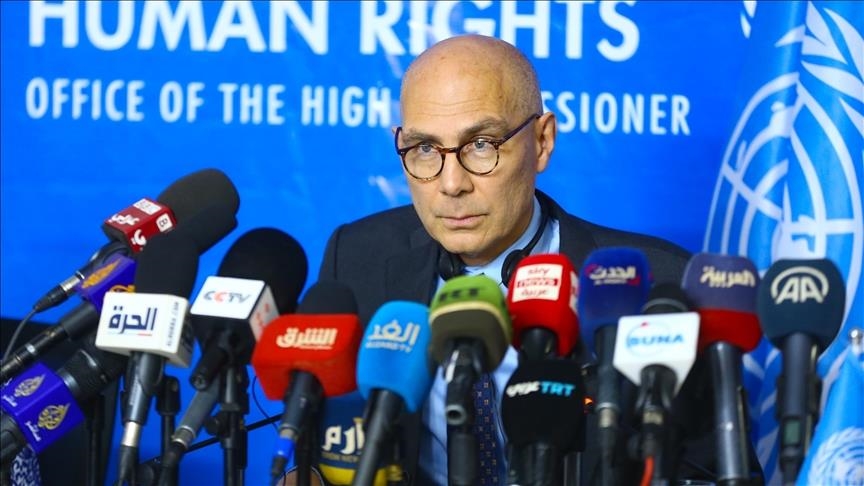GENEVA
The UN human rights chief on Thursday urged the UK government to reconsider proposed changes to the Northern Ireland Troubles law that foresees “conditional immunity from investigation” for acts committed by security forces.
The bill “should adequately ensure respect for the rights of victims, survivors and their families,” said Volker Turk, UN high commissioner for human rights.
“I urge the UK to reconsider its approach and engage in further meaningful and inclusive consultations on how best to advance a human rights-centered way to address the legacy of the Troubles,” Turk said.
The rights chief said he recognizes that addressing the legacy of the Troubles from the 1960s to the 1990s is a hugely complex and sensitive matter.
“Respect for the rights of victims, survivors, and their families to truth, justice, reparation, and guarantees of non-recurrence is essential for reconciliation,” Turk stressed.
“Their rights must be placed at the heart of all attempts to address the legacy of the Troubles.”
He said the draft legislation appears incompatible with the UK’s international human rights obligations.
The rights chief has previously communicated his observations to the UK government.
The proposed law provides conditional immunity from investigation and prosecution for those accused of committing severe human rights violations and other international crimes other than sex offenses.
“Introducing conditional immunity in this manner would likely be at variance with the UK’s obligations under international human rights law to investigate and, where appropriate, prosecute and punish those found responsible for serious human rights violations,” Turk said.
Human rights concerns
“Concerns remain that the bill would obstruct the rights of victims, survivors, and their families to effective judicial remedy and reparations, including by prohibiting most criminal prosecutions and civil actions for Troubles-related offenses,” Turk said.
The bill is set for review in the UK parliament’s upper chamber, the House of Lords, on Jan. 24 and 31.
The text of the proposed amendments was made public only a week before the House of Lords committee stage, said Turk.
“This gives the public and relevant stakeholders, including victims and survivors, insufficient time to scrutinize the amendments and participate meaningfully in this hugely significant legislative process.”
He urged the UK to reconsider its approach and engage in meaningful and inclusive consultations on how best to advance a human rights-centered way to address the legacy of “the Troubles.”
Northern Ireland voted to remain in the EU in the 2016 referendum, evoking fears the Brexit process could trigger hostility in the region.
The Troubles, an era of conflict between the British government and pro-British paramilitaries on one side and Irish Republicans and nationalists on the other, ended in 1998.
The UK and the Republic of Ireland signed a deal, brokered by the US and eight political parties in Northern Ireland, on April 10, 1998.
The deal primarily saw the end of the Troubles-era violence, in which around 3,500 people lost their lives.

